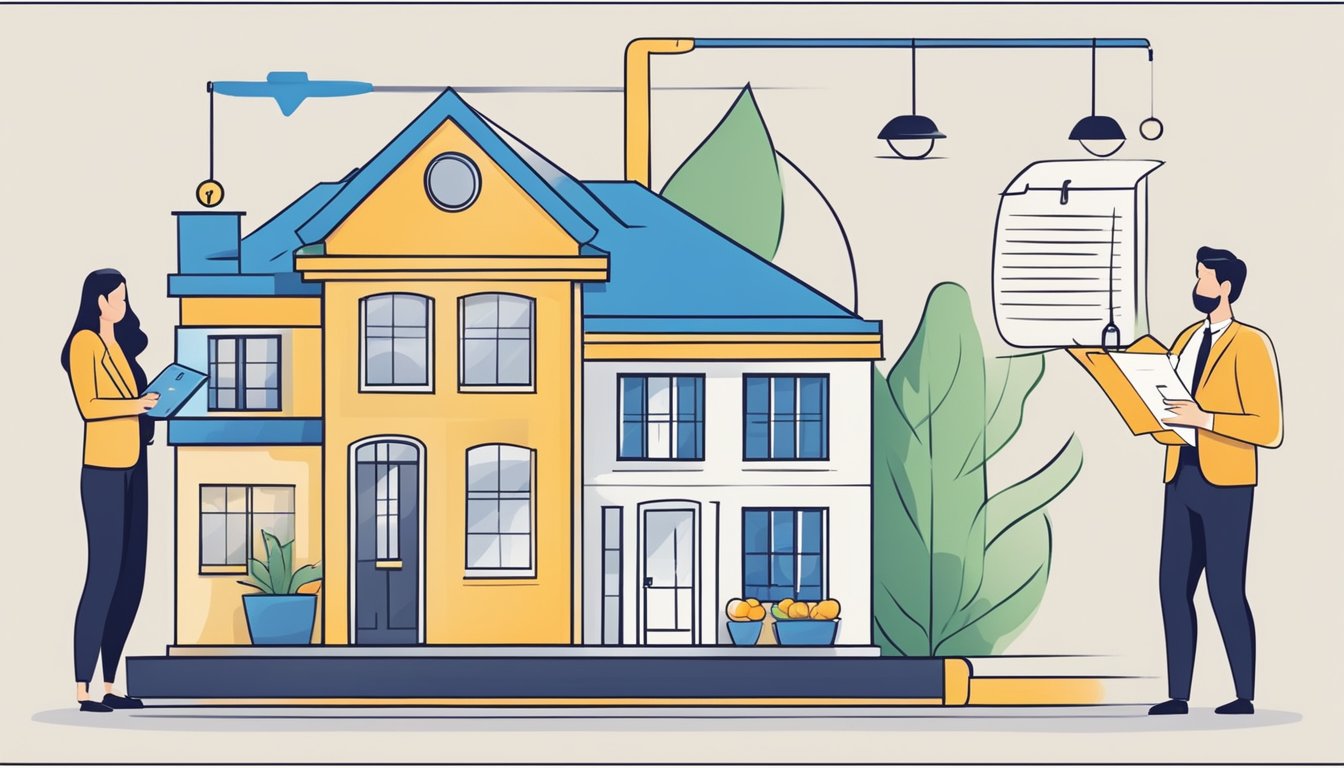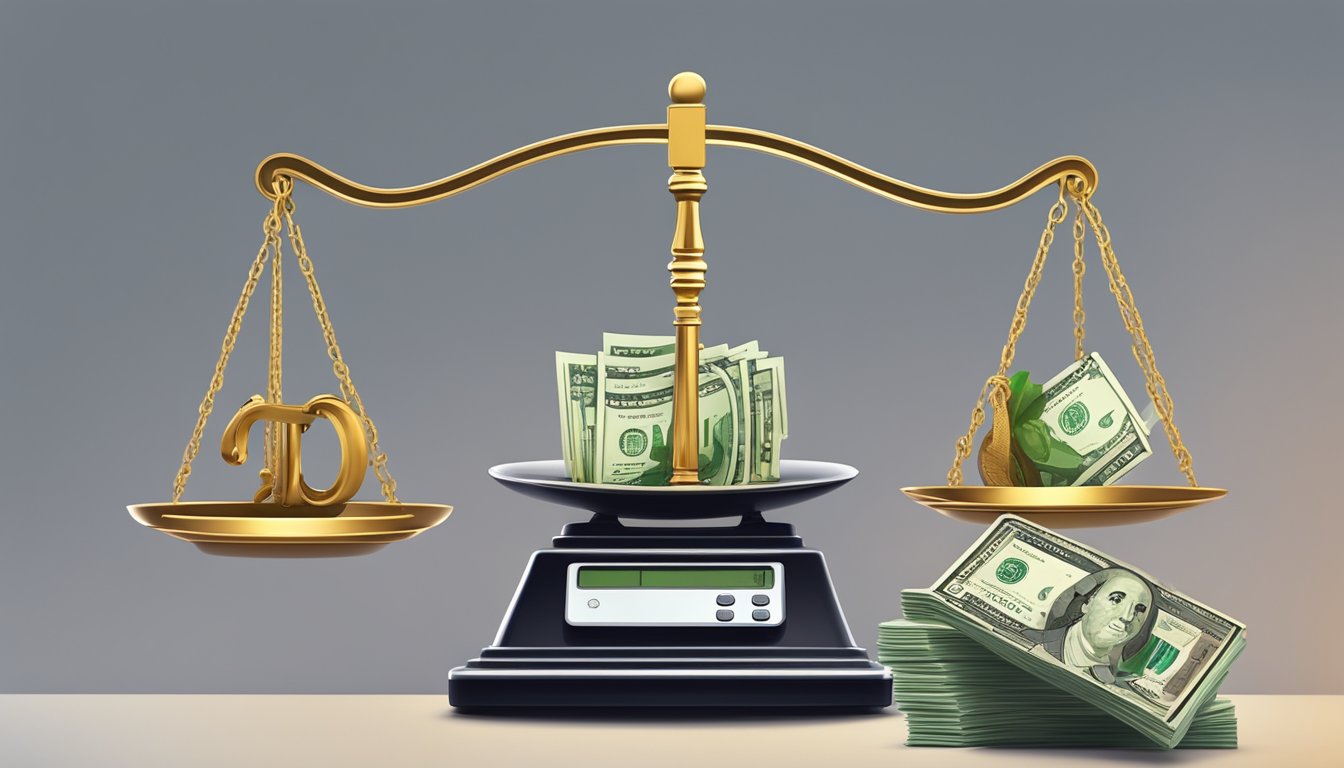If you’re looking to borrow money to finance a big purchase or investment, you might be considering taking out a loan. But with so many different types of loans available, it can be difficult to know which one is the right choice for you. Two of the most common types of loans are home loans and personal loans. In this article, we’ll explore the benefits and drawbacks of each type of loan to help you make an informed decision.

Understanding Home and Personal Loans Home loans are loans that are specifically designed to help you purchase a property, whether it’s a house or an apartment. These loans typically have lower interest rates and longer repayment terms than personal loans, making them a popular choice for people who want to invest in a property. On the other hand, personal loans can be used for a wide range of purposes, from paying for a wedding to consolidating debt. They tend to have higher interest rates than home loans and shorter repayment terms, but they can be a good option if you need to borrow a smaller amount of money.
Comparing Loan Benefits and Drawbacks When it comes to choosing between a home loan and a personal loan, there are a number of factors to consider. Home loans are generally a better choice if you’re looking to borrow a large amount of money and want to take advantage of lower interest rates and longer repayment terms. Personal loans, on the other hand, can be a good option if you need to borrow a smaller amount of money and want to pay it back more quickly.
Key Takeaways
- Home loans are best for those looking to borrow a large amount of money for a property purchase, while personal loans are better suited for smaller, shorter-term borrowing needs.
- Home loans generally have lower interest rates and longer repayment terms, while personal loans have higher interest rates and shorter repayment terms.
- When choosing between a home loan and a personal loan, it’s important to consider your specific borrowing needs and financial situation.
Understanding Home and Personal Loans

When it comes to taking out a loan, there are two main types to consider: secured and unsecured loans. Home loans and personal loans fall into these categories respectively. Understanding the differences between these types of loans will help you determine which one is best suited to your needs.
Types of Loans: Secured and Unsecured
A secured loan is one that requires collateral, such as property, to secure the loan. A home loan is a type of secured loan, where the property being purchased is used as collateral. On the other hand, a personal loan is an unsecured loan, which means that it does not require collateral.
Determining Loan Suitability
When determining which type of loan is suitable for you, consider the amount you need to borrow, the length of time you need to repay the loan, and your creditworthiness. Home loans are typically used to purchase property, while personal loans can be used for a variety of purposes, such as debt consolidation, home improvement, or unexpected expenses.
Loan Costs and Interest Rates
When taking out a loan, it’s important to consider the costs associated with it. This includes interest rates, fees, and other charges. Interest rates can be fixed or variable, meaning they can either stay the same or change over time. Home loans often have lower interest rates than personal loans, as they are secured by collateral. However, personal loans may have lower fees and closing costs.
Overall, both home loans and personal loans have their advantages and disadvantages. It is important to carefully consider your financial situation and needs before deciding which type of loan to take out. Remember to compare interest rates, fees, and other charges from different financial institutions to ensure you get the best deal.
Comparing Loan Benefits and Drawbacks

Advantages of Home Loans
When it comes to buying a property, a home loan is a popular option for many. One of the main advantages of a home loan is that it allows you to spread the cost of the property over a longer period, usually up to 25 years. This can make it easier to manage your finances, as you can make smaller repayments over a longer period.
Another advantage of a home loan is that it can help you build equity in your property. As you make repayments on your loan, you will gradually pay off the principal amount and build equity in your property. This can be beneficial if you plan to sell your property in the future, as you may be able to earn a profit on the sale.
Home loans also offer tax benefits. If you are a homeowner, you may be eligible for tax deductions on your mortgage interest payments. This can help you save money on your taxes and reduce your overall debt.
Advantages of Personal Loans
Personal loans are another popular option for those who need to borrow money. One of the main advantages of a personal loan is that it can be used for a variety of purposes, such as consolidating debt, paying for emergencies, or making large purchases.
Personal loans can also be a good option if you need fast funding. Many lenders offer quick approval and funding for personal loans, which can be helpful if you need money quickly.
Another advantage of a personal loan is that it is unsecured, which means you don’t need to put up any collateral to secure the loan. This can be beneficial if you don’t own a property or other valuable assets.
Risks and Considerations
While both home loans and personal loans offer benefits, there are also risks and considerations to keep in mind. For example, home loans typically require a down payment and may have higher interest rates than personal loans. You may also need to pay for additional costs such as property taxes and insurance.
Personal loans, on the other hand, may have higher interest rates than home loans and may not offer tax benefits. You may also need to pay fees such as origination fees or prepayment penalties.
When considering a loan, it’s important to think about your financial goals and needs. Consider factors such as your credit score, repayment period, loan-to-value ratio, and debt-to-income ratio. You should also compare different lenders and loan options to find the best fit for your situation.
In summary, both home loans and personal loans have their advantages and drawbacks. It’s important to weigh the pros and cons and choose the option that best fits your financial needs and goals.
Frequently Asked Questions

What are the advantages of opting for a home loan over a personal loan?
If you are looking to purchase a property, a home loan may be a better option for you than a personal loan. The main advantage of a home loan is that the interest rates are generally lower than those of a personal loan. Additionally, home loans typically have longer repayment terms, which can make your monthly payments more manageable.
How do the interest rates compare between a home loan and a personal loan?
As mentioned earlier, home loans generally have lower interest rates than personal loans. This is because home loans are secured by the property being purchased, which makes them less risky for lenders. Personal loans, on the other hand, are unsecured and thus carry a higher risk for lenders, resulting in higher interest rates.
Can you explain the differences in repayment terms for home loans versus personal loans?
Home loans typically have longer repayment terms than personal loans. The repayment period for a home loan can range from 10 to 30 years, while personal loans usually have repayment terms of up to 7 years. This means that your monthly payments will be lower for a home loan than for a personal loan, but you will be paying interest for a longer period of time.
Is it more beneficial to consolidate debt into a mortgage or take out a personal loan?
Consolidating debt into a mortgage can be beneficial if you have a lot of debt and are struggling to make your monthly payments. By consolidating your debt into your mortgage, you can lower your monthly payments and reduce the amount of interest you pay over time. However, it is important to note that you will be paying interest on your debt for a longer period of time, which can result in you paying more interest overall.
What factors should one consider when choosing between a home loan and a personal loan for renovation purposes?
If you are considering renovating your home, it is important to consider the amount of money you need and the repayment terms that you can afford. Home renovation loans may have lower interest rates than personal loans, but they are secured by the property being renovated. This means that if you are unable to make your payments, you risk losing your home. Personal loans, on the other hand, are unsecured and carry a higher risk for lenders, resulting in higher interest rates.
How does the eligibility criteria differ for home loans compared to personal loans?
The eligibility criteria for home loans and personal loans differ significantly. Home loans require a down payment, which can range from 5% to 20% of the property’s value, depending on the lender. Additionally, lenders will look at your credit score, income, and employment history when determining your eligibility for a home loan. Personal loans, on the other hand, are typically easier to qualify for and may not require a down payment. However, lenders will still look at your credit score and income when determining your eligibility for a personal loan.




